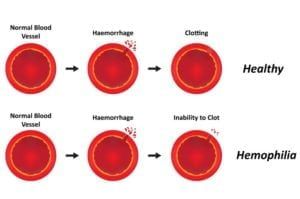Dyspnea, or shortness of breath, can be a frightening condition – especially when it happens to a child. There are many reasons why a child may develop difficulty breathing, which may occur acutely or recur chronically. Any child experiencing unexplained shortness of breath needs immediate emergency evaluation. Once stabilized, a pediatric pulmonologist can begin determining the cause of dyspnea and develop a plan for treatment.
Did you know…
that dyspnea causes a different sensation from child to child? Some children may report feeling tightening in the chest while others may feel as though they are being suffocated. Often the condition is brought on by external factors that worsen underlying conditions, such as strenuous exercise, high altitude or morbid obesity.
Frequently Asked Questions
What types of conditions cause children to develop dyspnea?
There are many different conditions that can result in shortness of breath – some common and some rare. The majority of children with dyspnea experience the condition as a result of a pulmonary or cardiac condition, as these are the organs responsible for distributing oxygen to and remove carbon dioxide from the body’s tissues. Children with chronic dyspnea most often experience shortness of breath because of asthma, COPD, heart dysfunction, lung disease or obesity.
Should my child see a pulmonologist if he or she develops shortness of breath?
Schedule a doctor’s appointment for any unexplained case of dyspnea. If your child has a history of dyspnea and is currently managing it with treatment or therapy, he or she may still need to visit a doctor if the symptoms occur with fever, chills, swelling or skin (especially the lips and fingertips) that is turning blue.
What types of treatments are available for dyspnea?
Treatment for dyspnea depends on its cause and whether it is a chronic or acute condition. For example, a child with chronic dyspnea caused by asthma may require the use of an inhaler whereas a child with acute shortness of breath brought on by pneumonia will require treatment with antibiotics. A pulmonologist may also suggest making dietary changes for a young patient who is very overweight.











































































































































































































































































































